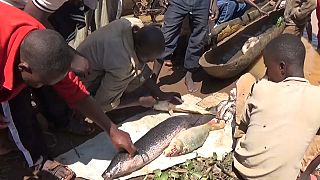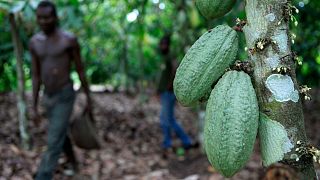Greenpeace
Producers of fishmeals and fish oil for European and Asian industries are depriving West Africans of a significant part of their diet and contributing to the plundering of fishery resources, Greenpeace said in a report published Tuesday.
The production of fishmeal and fish oil in this region of the continent has increased from 13,000 tonnes in 2010 to 170,000 tonnes in 2019, according to Greenpeace, which has been sounding the alarm for several years.
Greenpeace noted that, according to the UN Food and Agriculture Organisation (FAO), the main species used for fishmeal and oil production, especially the sardines are being"overexploited".
The report reveals how more than half a million tonnes of small pelagic fish are extracted every year along the coast of West Africa and converted into feed for aqua- and agriculture farming, dietary supplements, cosmetics and pet food products outside the African continent.
For instance, in Mauritania, 70% of fish oil exports went to the EU in 2019.
The governments of Mauritania, Senegal and The Gambia have so far failed to properly manage their common small pelagic fish resource, as well as to take the appropriate measures to ensure the right to food and livelihood for their impacted communities according to the report.













01:10
West African states to create new force to fight jihadists in region
Go to video
Benin police offer €30,000 reward for information leading to alleged coup plotters
02:32
Time is of an essence in search for migrant boats off African coast
00:53
Shipping data shows Indian diesel exports to West Africa at record high
01:57
Basketball tournament in Cotonou unites West African youth beyond borders
00:44
ECOWAS to cut air transport taxes in bid to lower cost of air travel in West Africa